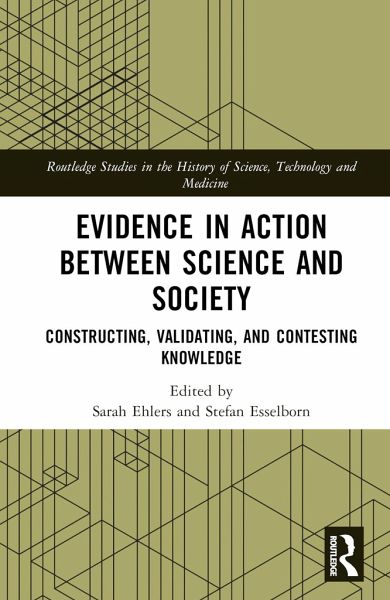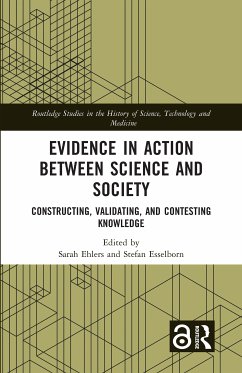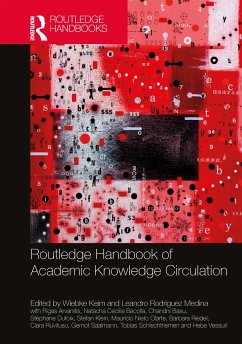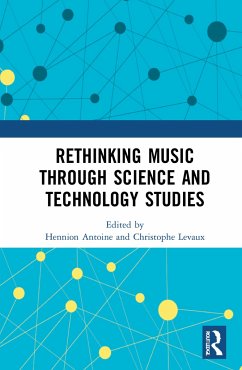
Evidence in Action between Science and Society
Constructing, Validating, and Contesting Knowledge
Herausgegeben: Ehlers, Sarah; Esselborn, Stefan
Versandkostenfrei!
Versandfertig in 6-10 Tagen
154,99 €
inkl. MwSt.
Weitere Ausgaben:

PAYBACK Punkte
77 °P sammeln!
This volume is an interdisciplinary attempt to insert a broader, historically informed perspective into current political and academic debates on the issue of evidence and the reliability of scientific knowledge.The tensions between competing paradigms, different bodies of knowledge and the relative hierarchies between them are a crucial element of the historical and contemporary dynamics of scientific knowledge production. The negotiation of evidence is at the heart of this process. Starting from the premise that evidence constitutes a central, but also essentially contested concept in contem...
This volume is an interdisciplinary attempt to insert a broader, historically informed perspective into current political and academic debates on the issue of evidence and the reliability of scientific knowledge.
The tensions between competing paradigms, different bodies of knowledge and the relative hierarchies between them are a crucial element of the historical and contemporary dynamics of scientific knowledge production. The negotiation of evidence is at the heart of this process. Starting from the premise that evidence constitutes a central, but also essentially contested concept in contemporary knowledge-based societies, this volume focuses on how evidence is generated and applied in practice-in other words, on "evidence in action." The contributions analyze and compare different evidence practices within the field of science and technology, how they interlink with different forms of power, their interaction with and impact on the legal and political domain, and their relationship to other, more heterodox forms of evidence that challenge traditional notions of evidence. In doing so, this volume provides much-needed context and historical background to contemporary debates on the so-called "post-truth" society.
Evidence in Action is the perfect resource for all those interested in the relationship between science, technology, and the role of knowledge in society.
Chapter 6 of this book is freely available as a downloadable Open Access PDF at http://www.taylorfrancis.com under a Creative Commons [Attribution-Non Commercial-No Derivatives (CC-BY-NC-ND)] 4.0 license.
The tensions between competing paradigms, different bodies of knowledge and the relative hierarchies between them are a crucial element of the historical and contemporary dynamics of scientific knowledge production. The negotiation of evidence is at the heart of this process. Starting from the premise that evidence constitutes a central, but also essentially contested concept in contemporary knowledge-based societies, this volume focuses on how evidence is generated and applied in practice-in other words, on "evidence in action." The contributions analyze and compare different evidence practices within the field of science and technology, how they interlink with different forms of power, their interaction with and impact on the legal and political domain, and their relationship to other, more heterodox forms of evidence that challenge traditional notions of evidence. In doing so, this volume provides much-needed context and historical background to contemporary debates on the so-called "post-truth" society.
Evidence in Action is the perfect resource for all those interested in the relationship between science, technology, and the role of knowledge in society.
Chapter 6 of this book is freely available as a downloadable Open Access PDF at http://www.taylorfrancis.com under a Creative Commons [Attribution-Non Commercial-No Derivatives (CC-BY-NC-ND)] 4.0 license.













